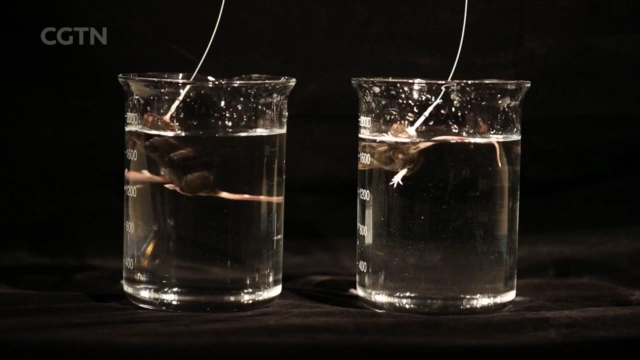
13:31, 24-Dec-2018
Tech It Out: Unlock the secret of ketamine to fight depression
Updated
12:52, 27-Dec-2018
05:39

CGTN's original series Tech It Out has returned to Global Watch. This week, we will show you the scientific and technological breakthroughs and ideas in China that will reshape our world. Today we look at a serious global disease, depression. It affects hundreds of millions of people on this planet. A recent case was the death of Stanford University physicist Zhang Shoucheng, following a long-time battle with depression. What causes depression? And what can we do about it? Scientists now might have some clue.
Around the world, 300 million people struggle with major depression but 30 to 50 percent of them don't get any better on anti-depressants.
Ketamine is a widely-used anesthetic but is perhaps most commonly known as the club drug, Special K. But in recent years it has become many clinicians' best hope for curing depression. In some cases, a low dose infusion can offer complete relief.
Scientists still have very limited knowledge on how Ketamine works. Currently, no government on the planet has approved Ketamine treatment.
Years of research has narrowed down scientists' focus. They now zone in on a small area in the central brain that processes bad moods, the lateral habenula. Inside a lateral habenula in good running order neurons transfer unpleasant moods to other parts of brain at a controllable speed by firing at spaced intervals. But in a depressive brain, scientists see a different scenario, erratic bursts of electrical impulses. Is that just a coincidence? To prove their theory the team provoked neurons in the habenula into firing in bursts using optogenetics, a pioneer technology that allows neurons to be activated with light.
This experiment is going to unlock the secret of depression. Just watch. In just a short time, this little rat has shown increased depressive behavior. Unlike its untreated companion who instinctively struggles when forced to swim, this one chose to give up.
Anything that can block the firing and get the habenula operating as normal, will eventually alleviate depression. Scientists think ketamine might fit the bill.
Unlike conventional antidepressants which aim to increase your pleasant mood, ketamine does the opposite by blocking unpleasant feelings. Understanding how ketamine acts so quickly could provide greater insight into the core mechanisms of depression and help to develop a ketamine alternative that does not have the same side effects as the drug itself.

SITEMAP
Copyright © 2018 CGTN. Beijing ICP prepared NO.16065310-3
Copyright © 2018 CGTN. Beijing ICP prepared NO.16065310-3